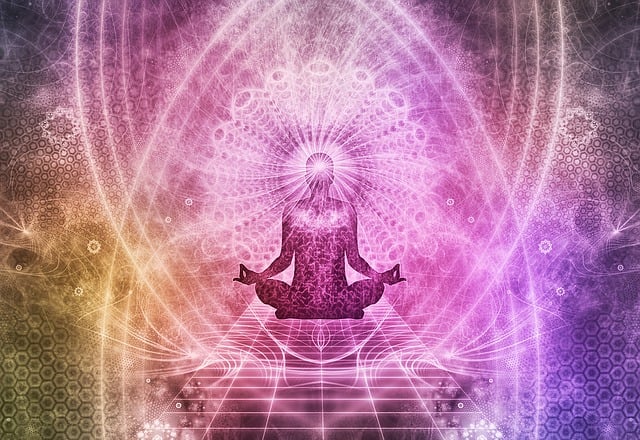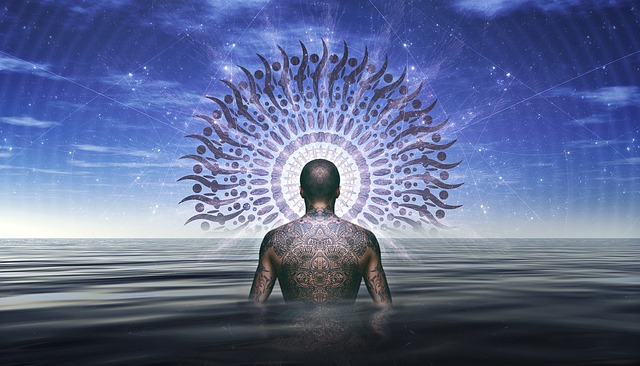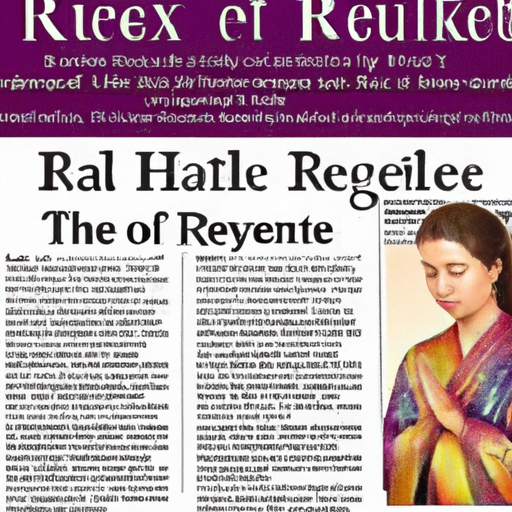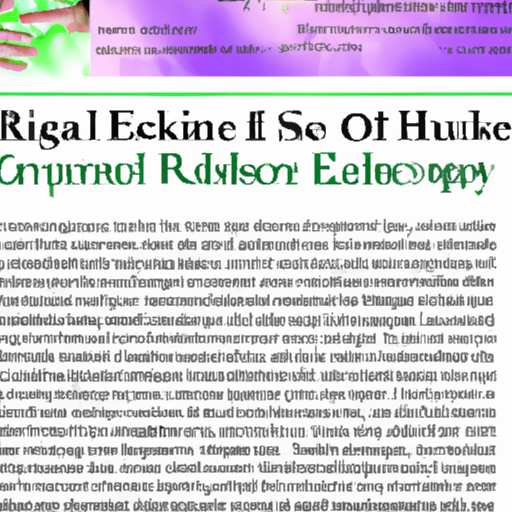
Are you curious about the effectiveness of Reiki healing? Have you wondered if it can really help improve your physical and mental well-being? Well, you’re in the right place! In this article, we will dive into the world of Reiki healing and explore its effectiveness in a friendly and conversational tone. By the end, you’ll have a better understanding of how Reiki works and whether it could be a beneficial practice for you.
Reiki healing is a holistic technique that originated in Japan and focuses on the natural flow of energy within the body. The practitioner, using their hands, channels this energy to promote relaxation and stress reduction, which ultimately aids in the healing process. While some may view Reiki as a spiritual practice, it can also be appreciated from a scientific standpoint. Research has shown that Reiki has the potential to reduce pain, anxiety, and depression, as well as improve sleep and overall quality of life. However, it’s important to note that individual experiences may vary, and more research is needed to fully understand the extent of Reiki’s effectiveness. So, whether you’re a skeptic or a believer, keep reading to learn more about this fascinating practice and decide for yourself if Reiki healing could be a valuable addition to your wellness routine.

Understanding Reiki Healing
Reiki healing is a practice that aims to restore balance and harmony within the body by channeling universal energy. It is a non-invasive, holistic approach that is believed to promote healing on physical, mental, emotional, and spiritual levels. In this article, we will explore the history, mechanisms, benefits, and criticisms of Reiki healing, as well as personal experiences and ethical considerations associated with the practice.
What is Reiki healing?
Reiki healing is a Japanese energetic healing technique that was developed in the early 20th century by Mikao Usui. The word “Reiki” consists of two Japanese characters: “rei” which means “universal,” and “ki” which means “life energy.” Reiki practitioners believe that this universal life energy flows through all living beings and is vital for their well-being. However, due to various factors such as stress, illness, or emotional disturbances, this energy can become imbalanced or blocked, leading to physical or emotional discomfort.
During a Reiki healing session, the practitioner acts as a conduit for the universal energy, allowing it to flow through their hands and into the recipient’s body. The recipient remains fully clothed and typically lies down while the practitioner places their hands on or near different areas of the body. The energy is said to naturally seek out areas of imbalance or blockage, promoting a sense of relaxation, relief, and vitality.
History of Reiki
The history of Reiki can be traced back to Japan in the early 20th century. Mikao Usui, a Japanese Buddhist monk, is credited with the discovery and development of Reiki as a healing modality. Usui sought to unlock the secrets of healing and personal enlightenment and embarked on a spiritual journey that led him to formulate the principles and practices of Reiki.
Usui’s teachings were passed down to various students, who further developed and spread the practice across Japan and eventually to the Western world. Today, Reiki has become widely practiced and accepted as a complementary therapy in many countries.
How Reiki healing works
Reiki healing is based on the belief that life energy flows through each of us and affects our physical, emotional, and spiritual well-being. According to Reiki practitioners, when the energy is imbalanced or blocked, it can result in physical ailments, emotional distress, or spiritual disconnection.
During a Reiki session, the practitioner uses their hands to transmit the universal life energy to the recipient. It is believed that this energy intuitively goes where it is needed most, helping to restore balance and harmony within the recipient’s body and energy system. The energy can be felt as sensations of warmth, tingling, or a gentle flow.
While the exact mechanisms of how Reiki works remain unknown, some theories suggest that it may promote relaxation, reduce stress, and activate the body’s natural healing processes. It is important to note that Reiki is not a substitute for medical treatment, but rather a complementary therapy that can support overall well-being.
Benefits of Reiki Healing
Physical health benefits
Reiki healing has been reported to have various physical health benefits. Many recipients claim that it helps to relieve pain, reduce inflammation, and accelerate the healing process. While scientific research on these specific claims is limited, some studies have shown promising results.
A study published in the Journal of Alternative and Complementary Medicine found that Reiki significantly reduced pain and anxiety among cancer patients undergoing chemotherapy. Another study conducted by the National Center for Complementary and Integrative Health (NCCIH) showed that Reiki had a positive impact on heart rate, blood pressure, and immune system function.
Mental and emotional well-being
Reiki healing is often praised for its positive effects on mental and emotional well-being. Recipients have reported feeling calmer, more centered, and less anxious after a Reiki session. It is believed that the energy works to release emotional blockages, promote self-awareness, and facilitate emotional healing.
Studies have shown that Reiki can reduce symptoms of depression, anxiety, and stress. In a study published in the Journal of Evidence-Based Complementary and Alternative Medicine, Reiki was found to significantly decrease depressive symptoms and improve overall well-being in patients with major depressive disorder.
Promotes relaxation and stress reduction
One of the key benefits of Reiki healing is its ability to induce deep relaxation and reduce stress. The gentle and nurturing nature of the practice allows recipients to enter a state of calmness and tranquility. This can be especially beneficial for those suffering from chronic stress or anxiety.
Research has shown that Reiki can lower cortisol levels, a hormone associated with stress, and activate the body’s relaxation response. A study conducted by the Center for Reiki Research found that Reiki sessions led to a significant decrease in heart rate and blood pressure, indicating a state of relaxation.
Enhances spiritual growth
Reiki healing is often regarded as a spiritual practice and has been associated with personal growth and self-discovery. Many recipients report feeling a deeper connection to themselves, others, and the world around them after receiving Reiki.
The practice of Reiki can help individuals tap into their own inner wisdom, intuition, and spirituality. It encourages self-reflection, self-care, and a greater sense of purpose. By promoting balance and harmony within the energy system, Reiki supports the alignment of mind, body, and spirit.
Scientific Research on Reiki Healing
While Reiki healing has gained popularity and widespread acceptance, scientific research on its effectiveness is still in its early stages. However, some studies have provided insights into the potential benefits of Reiki across different aspects of health and well-being.
Reiki and pain management
Several studies have examined the impact of Reiki on pain management. A study published in the Journal of Pain Management Nursing found that Reiki reduced pain intensity and improved pain relief in women undergoing gynecological surgery. Another study conducted by the University of Michigan Comprehensive Cancer Center showed that Reiki reduced pain and fatigue in breast cancer patients.
Reiki and anxiety reduction
Anxiety is a common mental health condition that can significantly affect an individual’s quality of life. Research has shown that Reiki can help reduce anxiety symptoms and improve overall well-being. A study published in the Journal of Evidence-Based Complementary and Alternative Medicine found that Reiki significantly reduced anxiety in cardiac patients.
Reiki and immune system function
The immune system plays a crucial role in defending the body against infections and diseases. Reiki has been studied for its potential impact on immune system function. A study conducted by the University of Hertfordshire in the UK showed that Reiki had a positive impact on immune system parameters in healthy volunteers. Another study published in the Journal of Holistic Nursing showed that Reiki boosted natural killer cell activity, which is essential for immune defense.
Reiki and quality of life measures
Numerous studies have examined the effects of Reiki on quality of life measures, such as physical well-being, emotional health, and overall satisfaction. A study published in the Journal of Integrative Medicine found that Reiki significantly improved quality of life and reduced symptoms of psychological distress in cancer patients. Another study conducted by the University of Connecticut Health Center showed that Reiki improved overall well-being and reduced symptom burden in individuals with fibromyalgia.
Personal Experiences with Reiki Healing
Testimonials from Reiki practitioners
Many Reiki practitioners have shared their personal experiences with the healing modality. They report feeling an enhanced sense of connection to the universal energy, heightened intuition, and a deeper understanding of their own energetic and spiritual nature. Some practitioners have also experienced personal healing and transformation through the regular practice of Reiki.
Testimonials from Reiki recipients
Reiki recipients often express gratitude for the profound impact the practice has had on their lives. Many report feeling a deep sense of relaxation, peace, and well-being after receiving Reiki sessions. Recipients have described experiencing physical pain relief, emotional healing, improved sleep, increased energy levels, and a greater sense of clarity.
While personal testimonials provide valuable insights into the potential benefits of Reiki, it is important to remember that individual experiences may vary and that scientific research is needed to provide further validation.

Critics and Skeptics of Reiki Healing
Debunking misconceptions about Reiki
Reiki healing has faced criticism and skepticism from some quarters, often due to misconceptions about its nature and effectiveness. Some critics dismiss Reiki as a pseudo-scientific or placebo-based therapy. However, it is essential to recognize that Reiki does not claim to cure diseases or replace medical treatment but rather supports overall well-being.
Counterarguments against Reiki’s effectiveness
Critics of Reiki point to the lack of scientific evidence supporting its mechanisms and benefits. Skeptics argue that any reported improvements can be attributed to the placebo effect or the natural healing capacity of the body. While it is true that more extensive research is needed to understand the specific mechanisms of Reiki, it is also important to acknowledge the subjective experiences and testimonials of those who have benefited from the practice.
Factors Affecting the Effectiveness of Reiki Healing
Several factors can influence the effectiveness of Reiki healing. These include:
Skill and experience of the Reiki practitioner
The skill and experience of the Reiki practitioner can impact the quality and effectiveness of the healing session. Practitioners who have undergone proper training and have extensive experience are more likely to deliver a beneficial and satisfying Reiki experience.
Receptiveness and belief of the recipient
The receptiveness and belief of the recipient can play a role in the effectiveness of Reiki healing. Openness to the practice and a willingness to engage with the healing process can enhance the overall experience and outcomes.
Frequency and consistency of Reiki sessions
Regular Reiki sessions can have a cumulative effect on the recipient’s well-being. The frequency and consistency of sessions can influence the long-term benefits and progress. However, the specific duration and frequency of Reiki sessions may vary depending on individual needs and preferences.
Combining Reiki with other complementary therapies
Reiki healing can be complemented by other holistic therapies such as acupuncture, yoga, or meditation. Integrating different modalities can enhance overall well-being and provide a more comprehensive approach to healing.

Reiki Healing in Conventional Medicine
The integration of Reiki in healthcare settings has been gaining recognition and acceptance in recent years. Many hospitals, clinics, and wellness centers now offer Reiki as a complementary therapy alongside conventional medical treatment. Reiki is often used to augment pain management, reduce anxiety, promote relaxation, and support the overall well-being of patients.
While the exact mechanisms of Reiki healing are still being explored, its non-invasive and gentle nature makes it a suitable modality for integrating into conventional medicine. It is important for healthcare providers to work collaboratively with Reiki practitioners and to ensure that ethical standards and guidelines are met.
Ethical Considerations in Reiki Healing
As with any healing practice, ethical considerations are essential in maintaining the integrity and safety of Reiki healing. These considerations include:
Respecting the autonomy of the recipient
Reiki practitioners must respect the autonomy and decisions of their recipients. Informed consent should be obtained before starting a session, and recipients should feel empowered to voice their needs and preferences throughout the process.
Informed consent and transparency
Practitioners should provide clear and accurate information about the nature of Reiki, its benefits, and limitations. Open communication and the establishment of a safe and supportive environment are crucial in ensuring the well-being of the recipient.
Professional standards and guidelines
Reiki practitioners should adhere to professional standards and guidelines to ensure ethical practice. This includes ongoing training, maintaining confidentiality, and seeking supervision or consultation when needed.

Reiki Healing as a Personal Journey
Reiki healing is not only a therapeutic modality but also a personal journey of self-discovery and empowerment. By engaging with Reiki, individuals can tap into their own inner resources and healing abilities. Some key aspects of Reiki as a personal journey include:
Empowerment and self-healing
Reiki empowers individuals to take an active role in their own healing and well-being. Through self-practice and self-care techniques, individuals can learn to harmonize their own energy, promote self-healing, and maintain overall balance and vitality.
Self-care practices in Reiki
Self-care practices are an integral part of the Reiki journey. Practitioners are encouraged to engage in regular self-Reiki sessions, meditation, mindfulness, and other holistic practices that promote self-awareness, relaxation, and rejuvenation.
Reiki for personal development
Reiki can be a transformative tool for personal development and growth. As individuals deepen their connection to the universal energy and their own intuitive guidance, they may experience shifts in perception, increased self-awareness, and a greater sense of purpose and fulfillment.
Conclusion
The effectiveness of Reiki healing is a subjective experience that can vary from person to person. While scientific research has begun to shed light on the potential benefits of Reiki, more extensive studies are needed to validate its efficacy across different health conditions.
Individual results may vary based on various factors, including the skill and experience of the practitioner, the receptiveness of the recipient, the frequency and consistency of sessions, and the integration of Reiki with other complementary therapies.
Further research and personal exploration can help individuals determine the effectiveness of Reiki healing for themselves. By respecting ethical considerations, engaging in self-care practices, and working collaboratively with healthcare providers, individuals can embark on a personal journey towards balance, well-being, and self-empowerment through Reiki healing.











